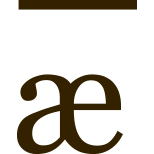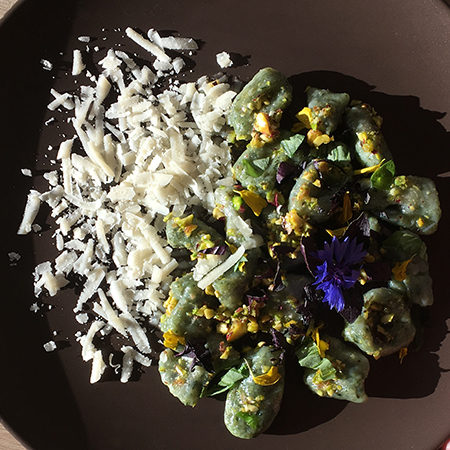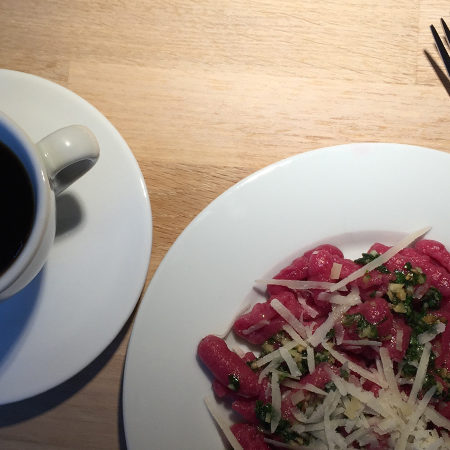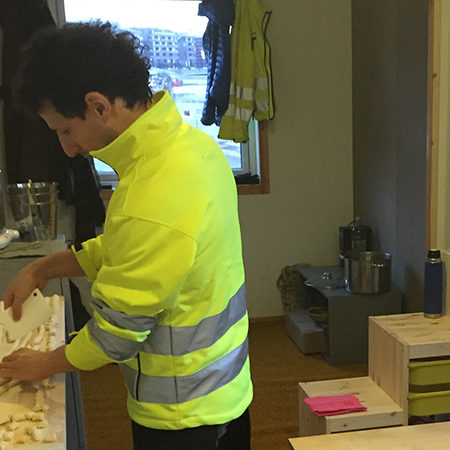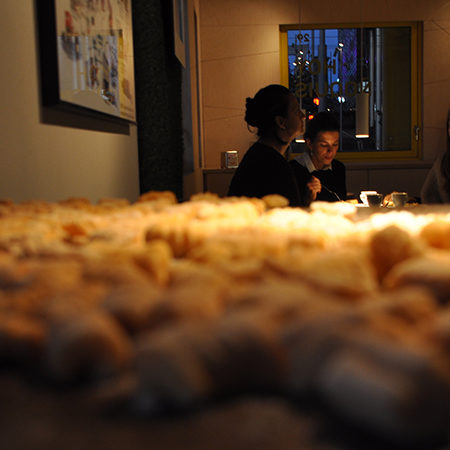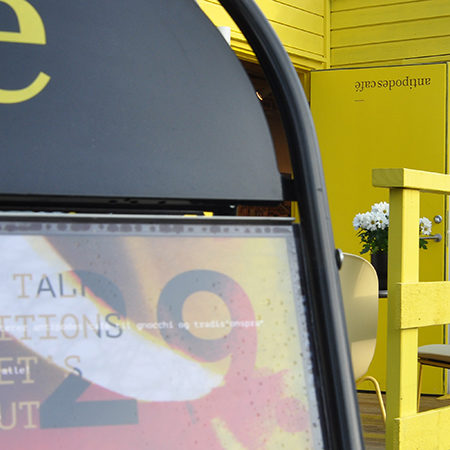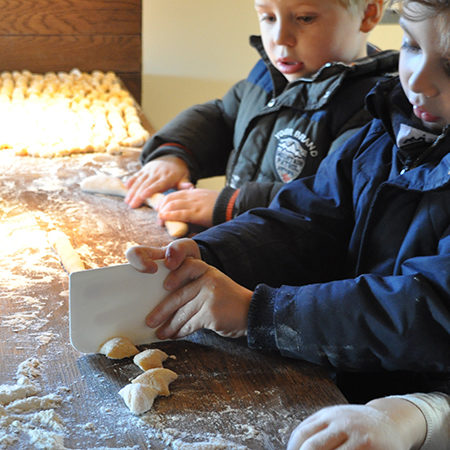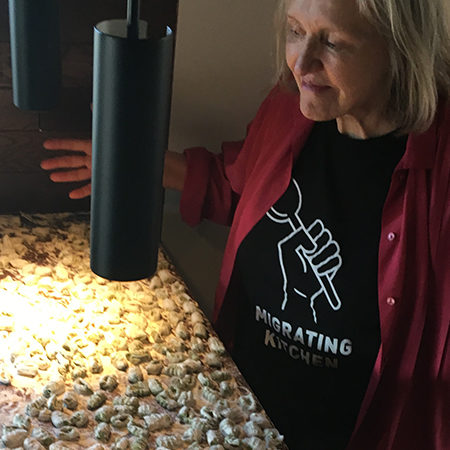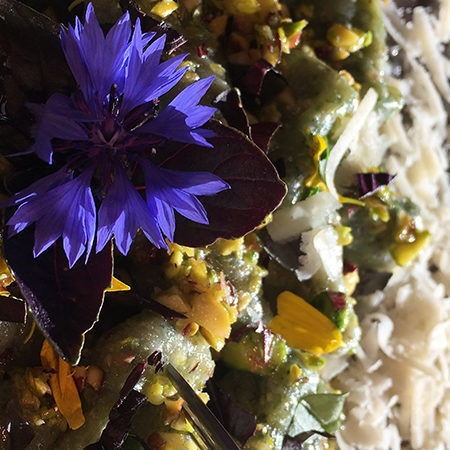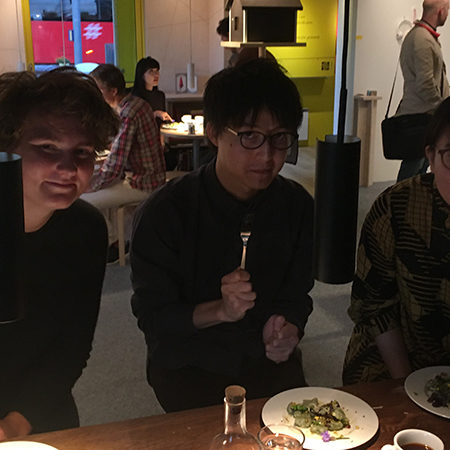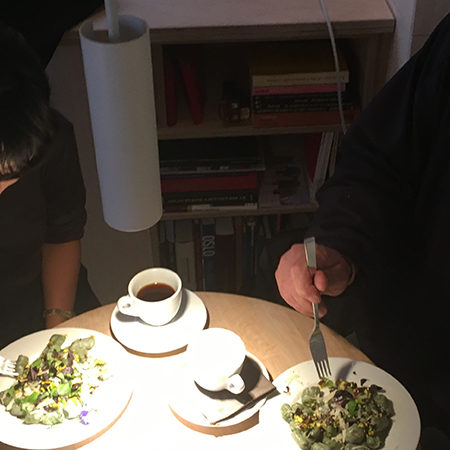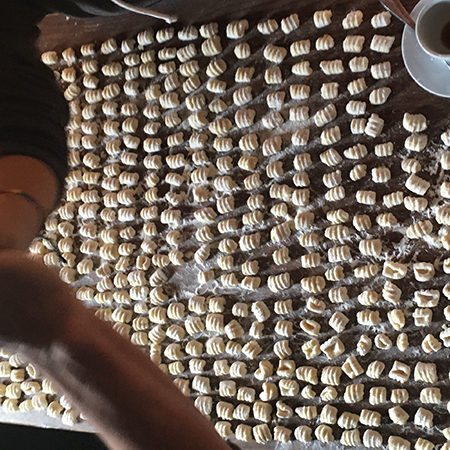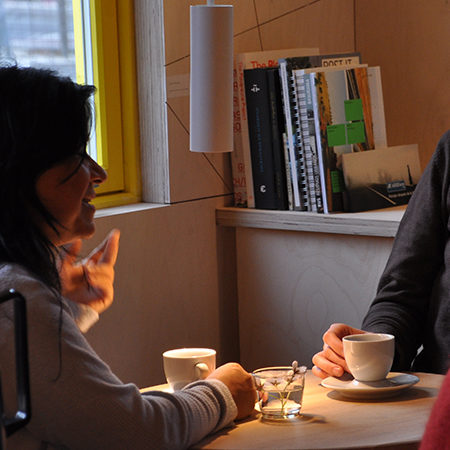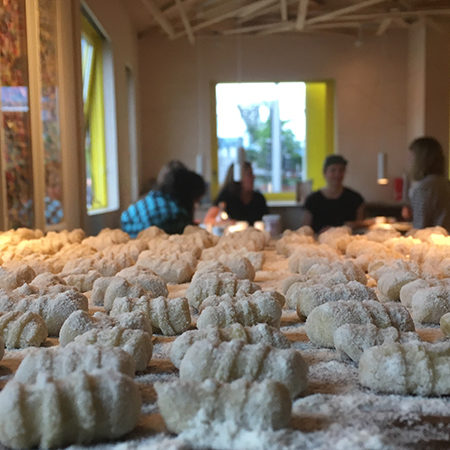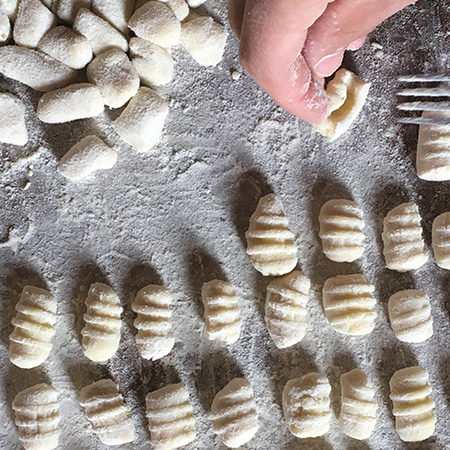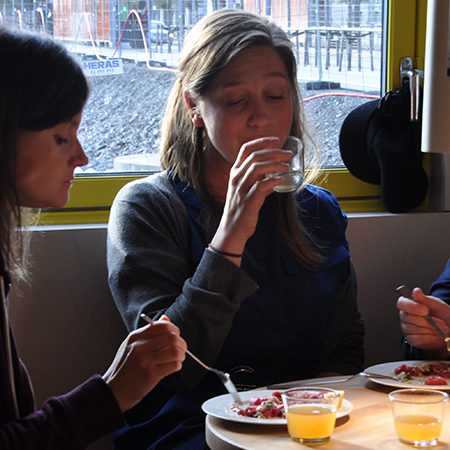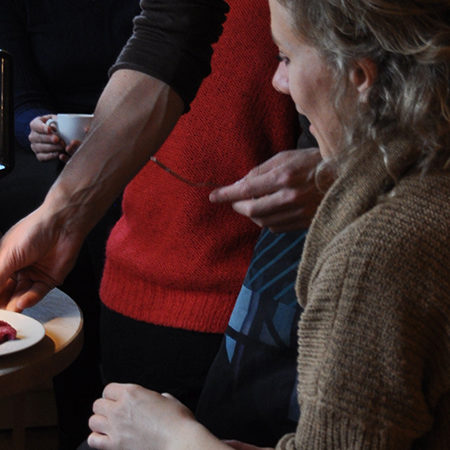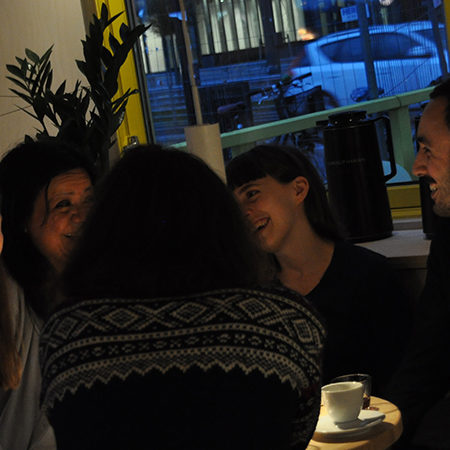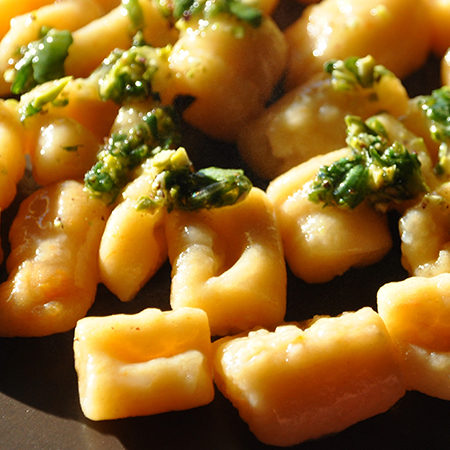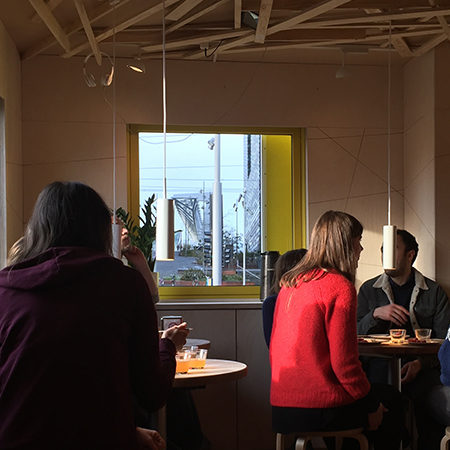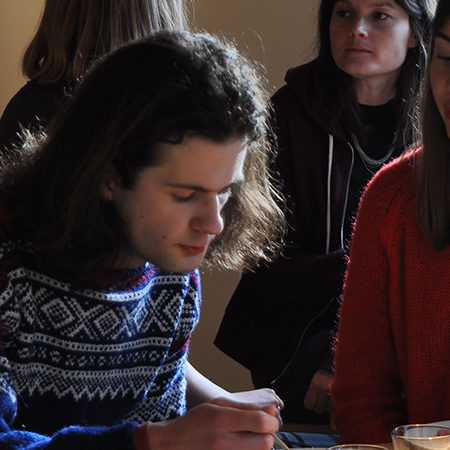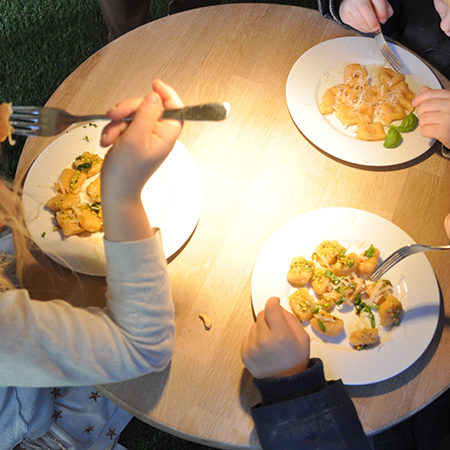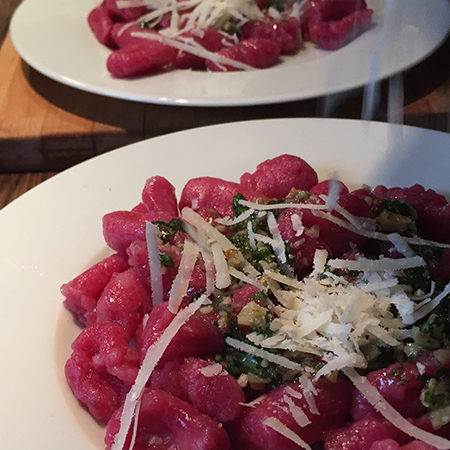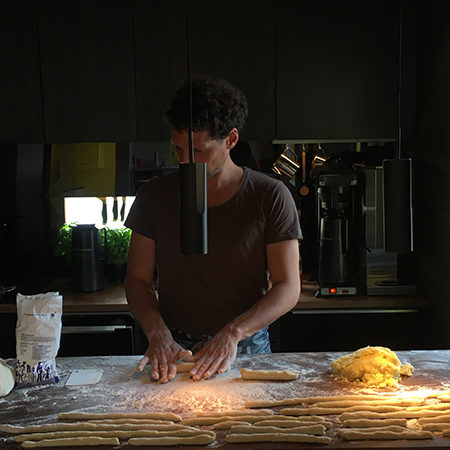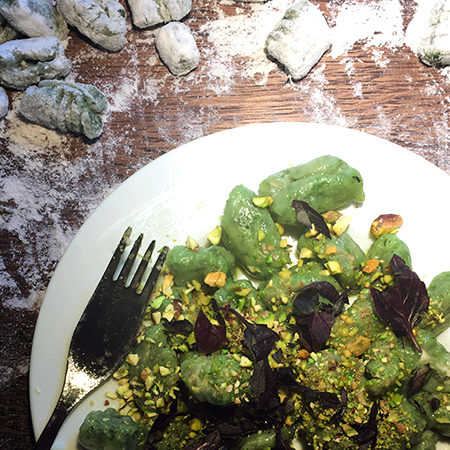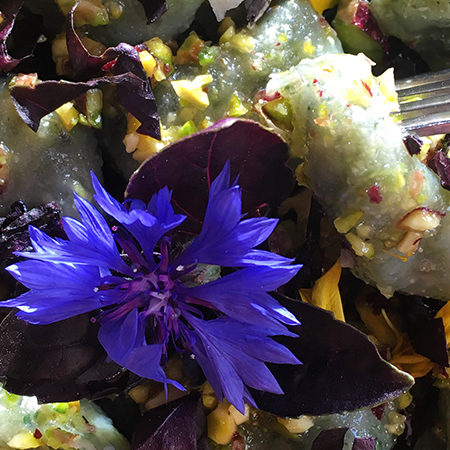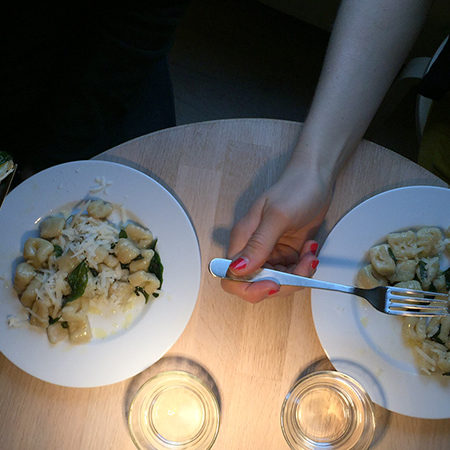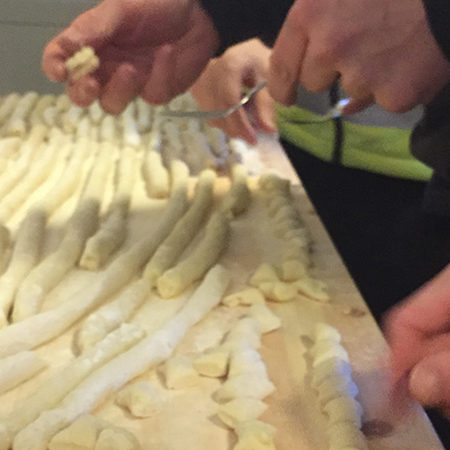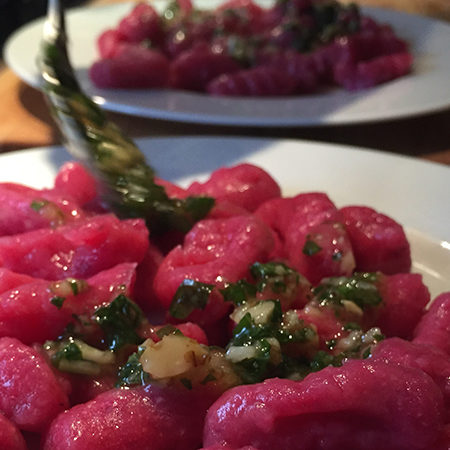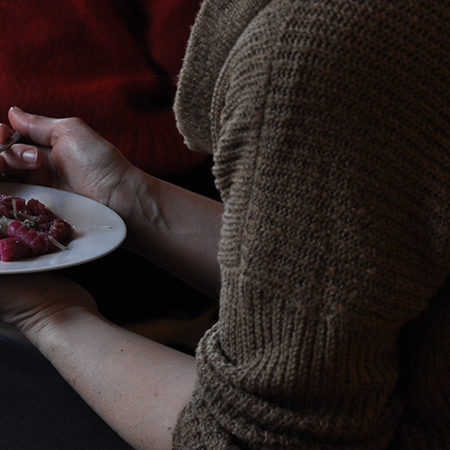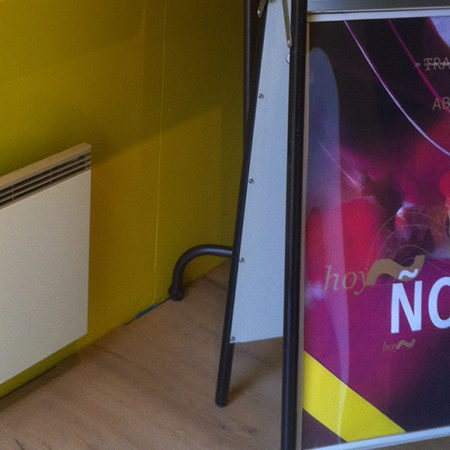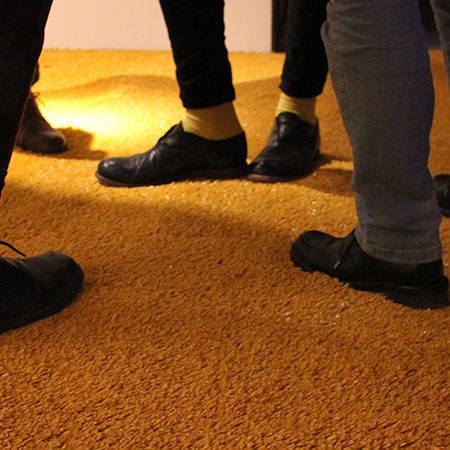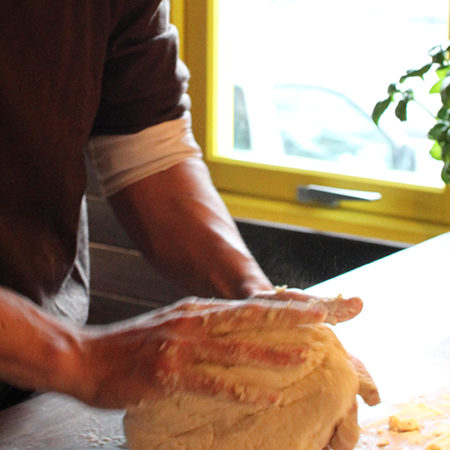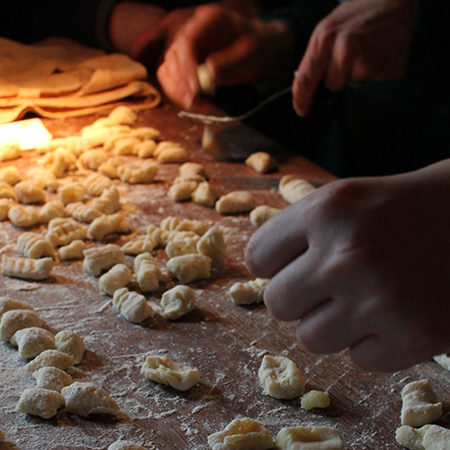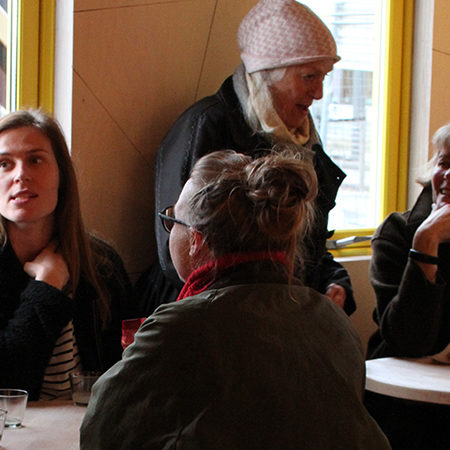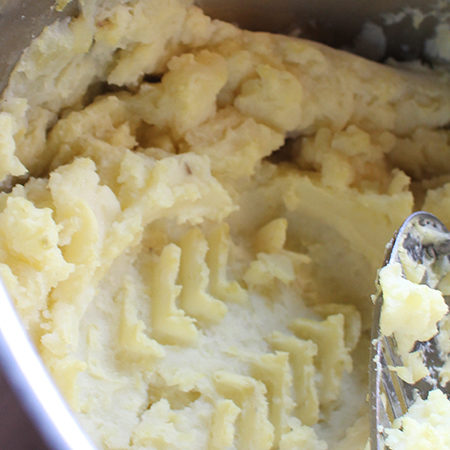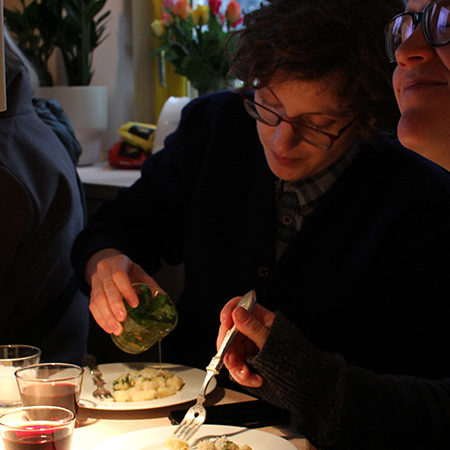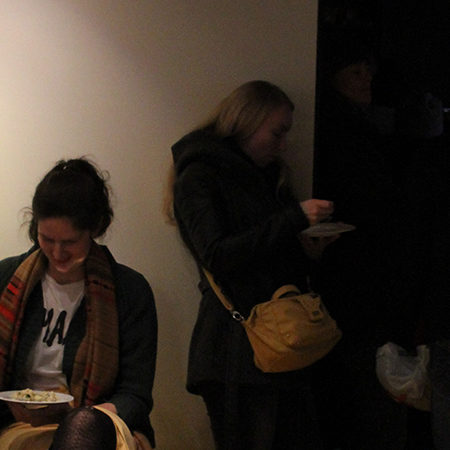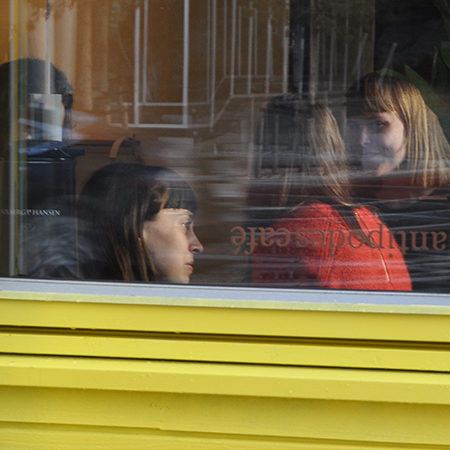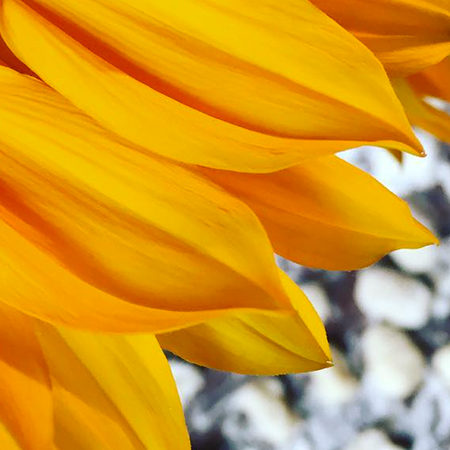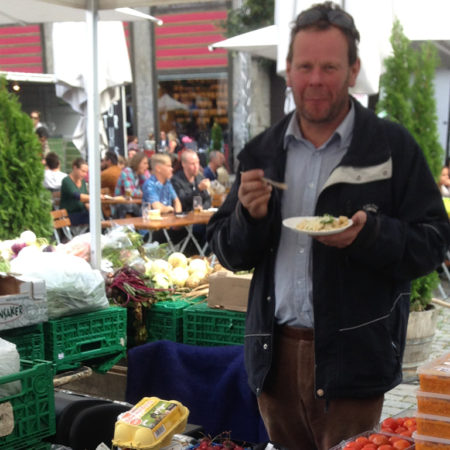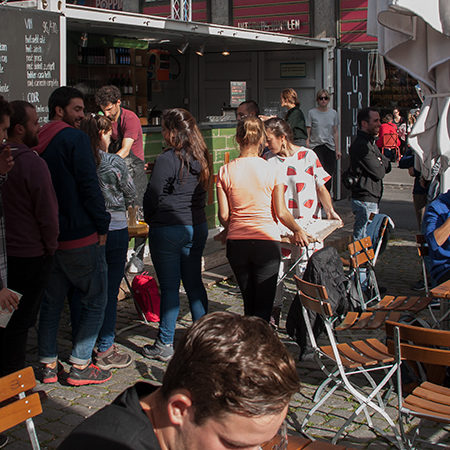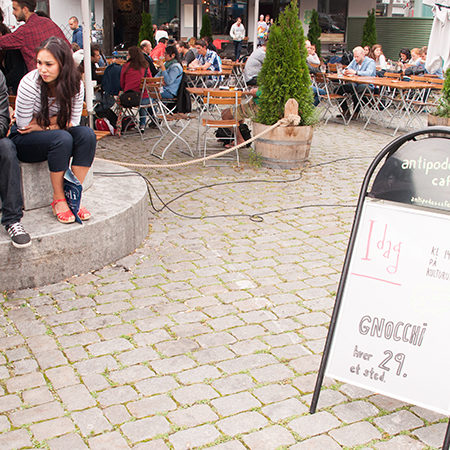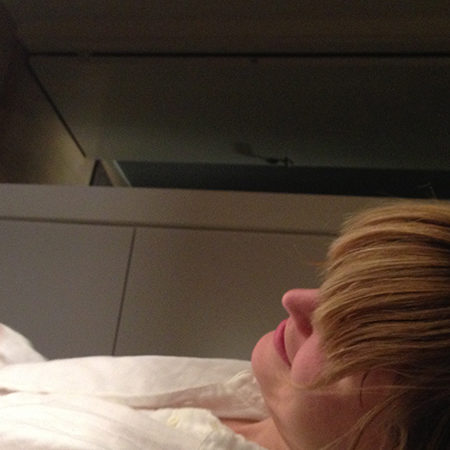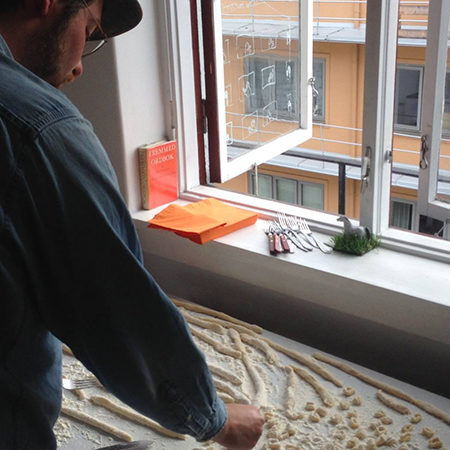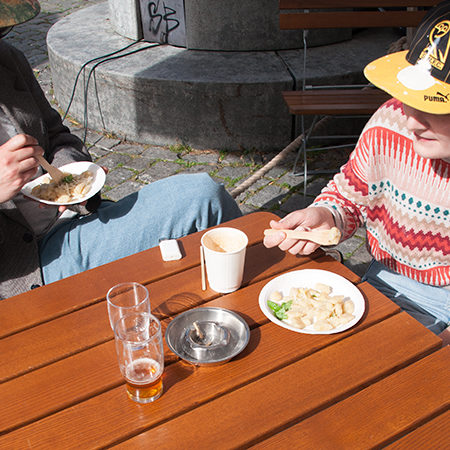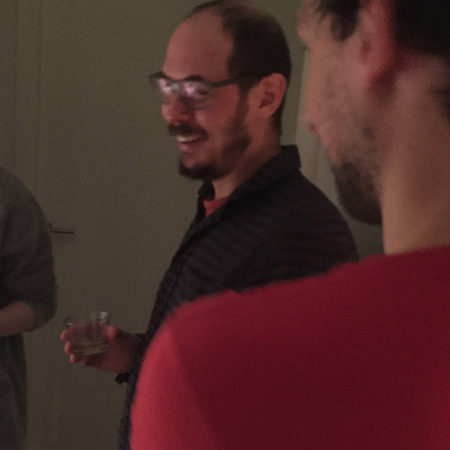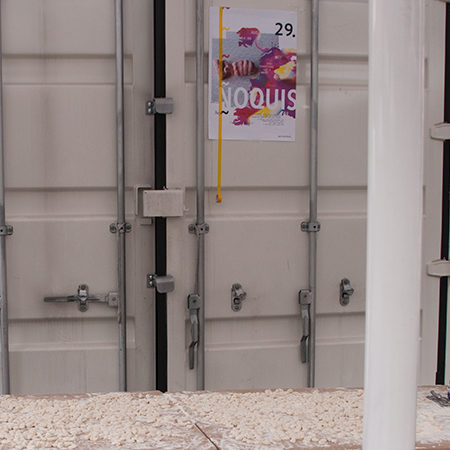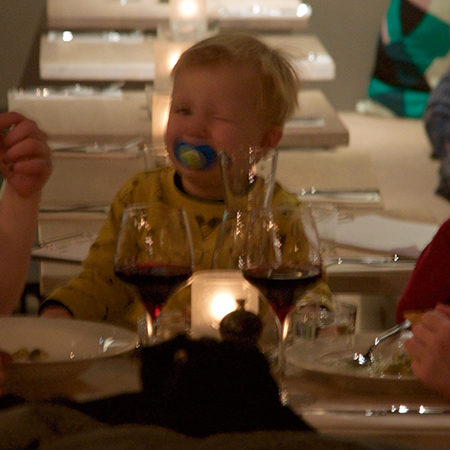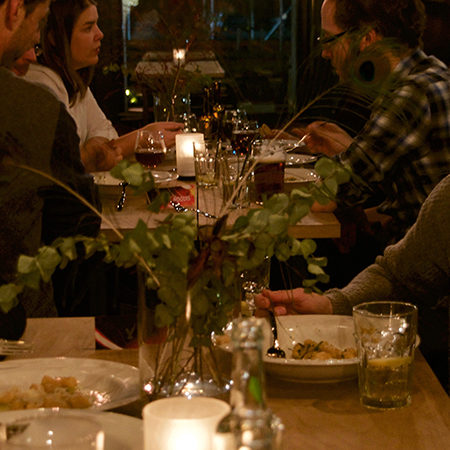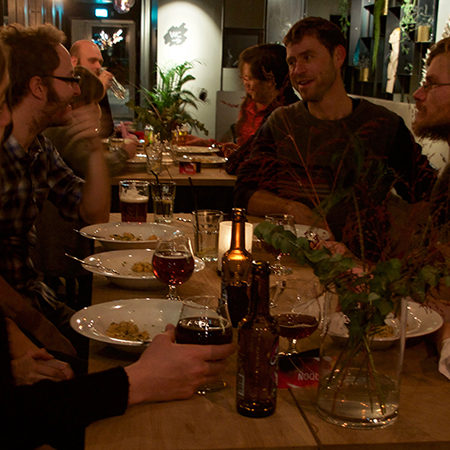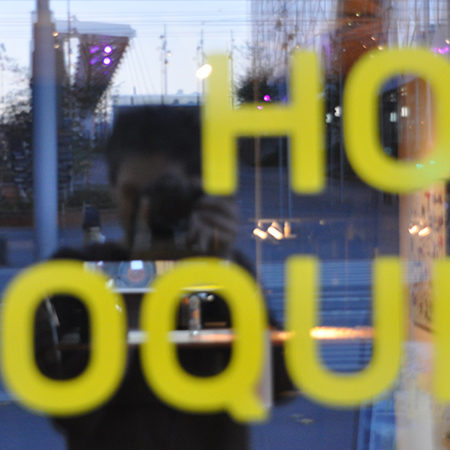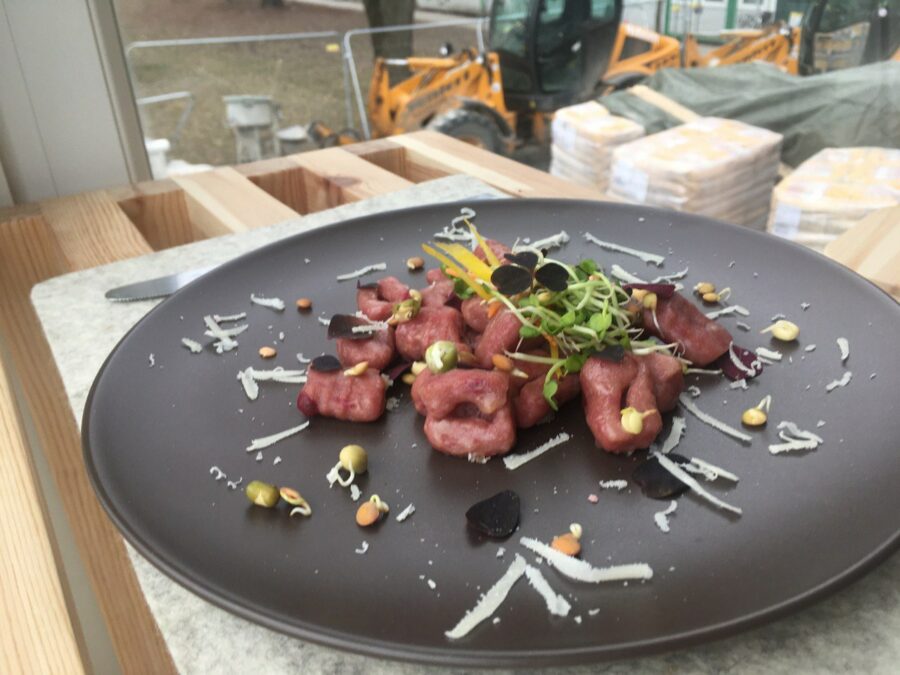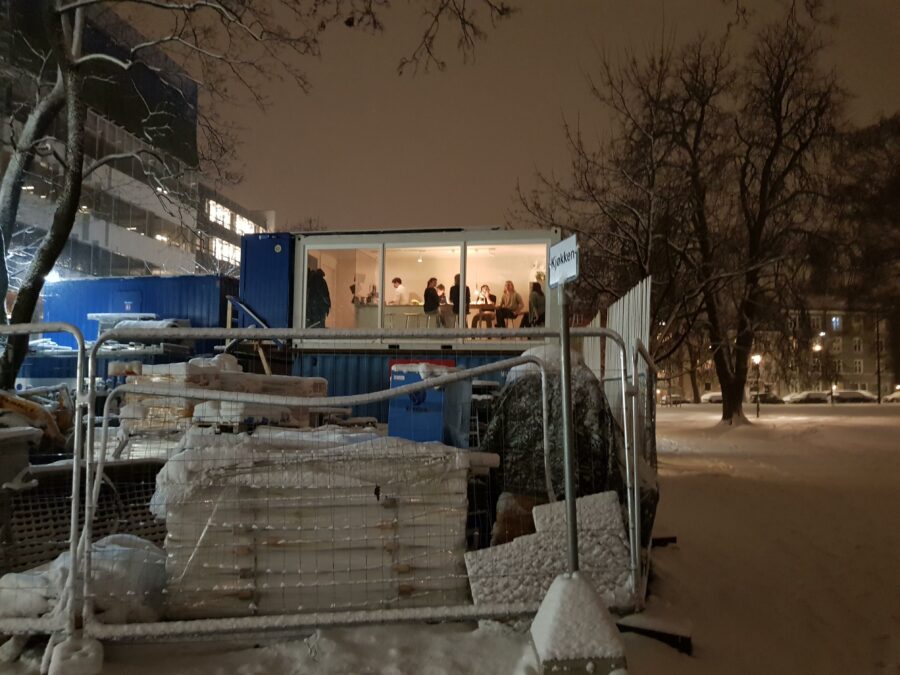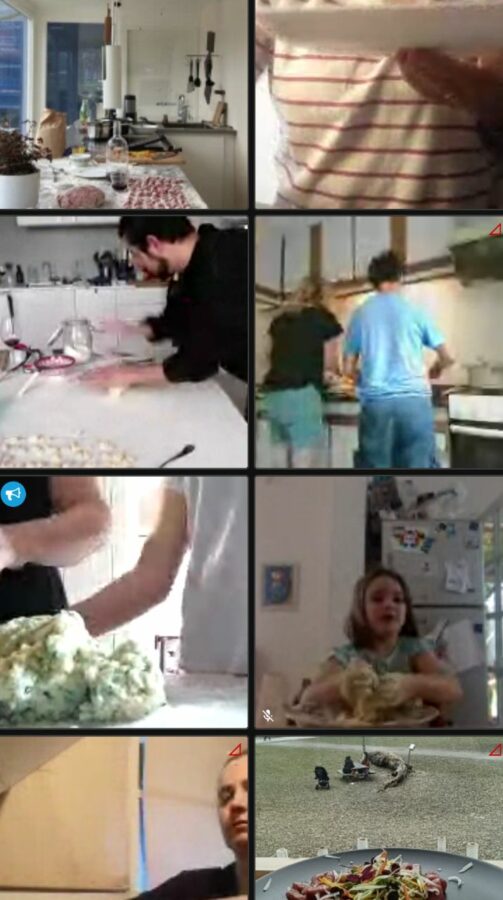Overview
- Listing categories Situations / Other projects / HOY ÑOQUIS
- Location / Region Norway
- Date from 2012.10.29
- Date to 2024.05.29
Description
‘Hoy Ñoquis’ is a series of traditional gatherings celebrating syncretism, set exclusively on the 29th in varied contexts (public and private spaces, indoors and outdoors).
Throughout the Río de la Plata region, there is a tradition of eating handmade gnocchi on the 29th of each month. On those days, people prepare their own versions, while restaurants and stores display a pavement sign that reads: ‘HOY ÑOQUIS.’
Looking back, potatoes have been a food source for thousands of years in South America and only a few centuries in Europe and the rest of the world. During the economic catastrophe of the 17th century, northern Italians devised a way to create pasta dumplings from potatoes, naming them gnocchi (from the Italian word for buns, lumps, or little balls). In the late 19th century and early 20th century, millions of Italians arrived in the Southern Cone with this knowledge. The origin of the 29th has multiple versions, as with all great histories. What is clear is that potatoes have played a significant role in addressing economic difficulties and saving diverse populations from starvation worldwide. Nordic countries also acknowledge these South American roots.▪ æ.2015
In Uruguay and Argentina, there is a tradition of eating handmade gnocchi the 29th of each month, both in houses and in restaurants. In these last ones, as well as in pasta stores, those days they usually put a sign in the street with the text "HOY ÑOQUIS" (Eng. Today: gnocchi).
Also as part of the tradition, in some places they put a coin (or even notes) under the dish, wishing for money.
This story -that has many versions as all good ones- perhaps should be started highlighting the travel of potatoes from South America to the rest of the world, starting with Europe after their invasion. Later on, poor farmers of northern Italy discovered that they can replace expensive wheat to create a new kind of pasta based on cheap and accessible potatoes, basically dumplings, called gnocchi (Eng. buns/lumps/little balls). This tuber crops has a strong relation with economical vicissitudes, saving from starving diverse populations around the world. Nordic countries knows quite well potatoes for that reason.
In late XIX and beginning of XX centuries, both Argentina and Uruguay where under exponential growth in all senses. But in these times, Europeans weren't in best situation, and particularly Italians flew in millions to those places escaping from economical crisis and wars. Those nations where young and defining their identity on daily basis, and this massive immigration radically affected that construction "through a policy of very strong cultural syncretism." In fact, "there are many Italian traditions that Argentinians [and Uruguayans] keep which are almost not existent in Italy." * One of them is to eat gnocchi on the 29th of each month. A simple dish for wishing for prosperity.
Felipe, born in Uruguay has in his family tree those Italians roots that allowed him to have Italian nationality. And thanks for those papers, he could move to Nordic countries without too many complications as if he arrived just as the South American he is.
Since he moved to Norway, impressed by
- the short time that the old Kingdom behaves as a totally independent nation;
- its quite recent and extreme economical richness (with its abundance);
- history of extreme poverty -not so far in time– still present in many gestures of raw simplicity and austerity;
- the potato is easily cultivated in Norwegian climate and soil;
- role of potatoes in history, saving population in hard times such as during Napoleonic wars or WWII, both in dishes and in glasses;
- the current displacement of potatoes towards modern imports such as rice, pasta and noodles;
- the strong policy against immigration;
- the apathy towards the foreign and the unknown, certified by the law of Jante from 1933;
- the commercial new traditions, such as eating taco on Friday nights or reading crime novels on April.
Felipe started cooking gnocchi sporadically the 29th -and last years on each one- in gathering with the aim of talking about traditions. Who makes them? why? and so on…
Venues and amount of visitors are different from meeting to meeting, but gnocchi are always served gratuitously. During 2016 "HOY ÑOQUIS" gatherings were supported by Oslo Kommune, Bydel Gamle Oslo. (Frivillighetsmidler 2016)
- On January 29th we officially open æKjøkken with HOY ÑOQUIS.
Several visitors on a nice rhythm, and first test of gnocchi made with buckwheat. - As in 2016, we celebrated on February too, this time with a more messy situation and one of the few nights of winter with snow.
- In March 29th under "social distance" times, we celebrated for the very first time with an online call open to anyone, and people from diverse parts of Italy, Spain, Argentina, Uruguay and Norway join to make and enjoy gnocchi. Such an amazing experience.
—
Soon we will add more pictures and comments.
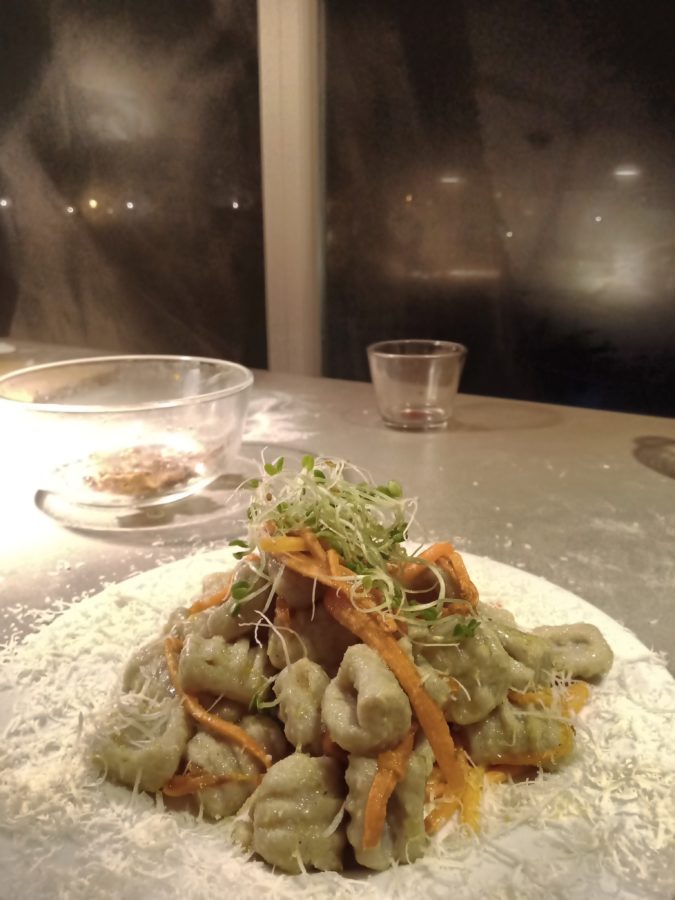
HOY ÑOQUIS in 2019 was just in November 29th and as a test of æKjøkken module, as it was under construction.
Visitors were 15 architects that worked at estudioHerreros in Madrid in diverse stages of th new Munch Museum. As that process took several years, many of them didn't meet before this gathering.
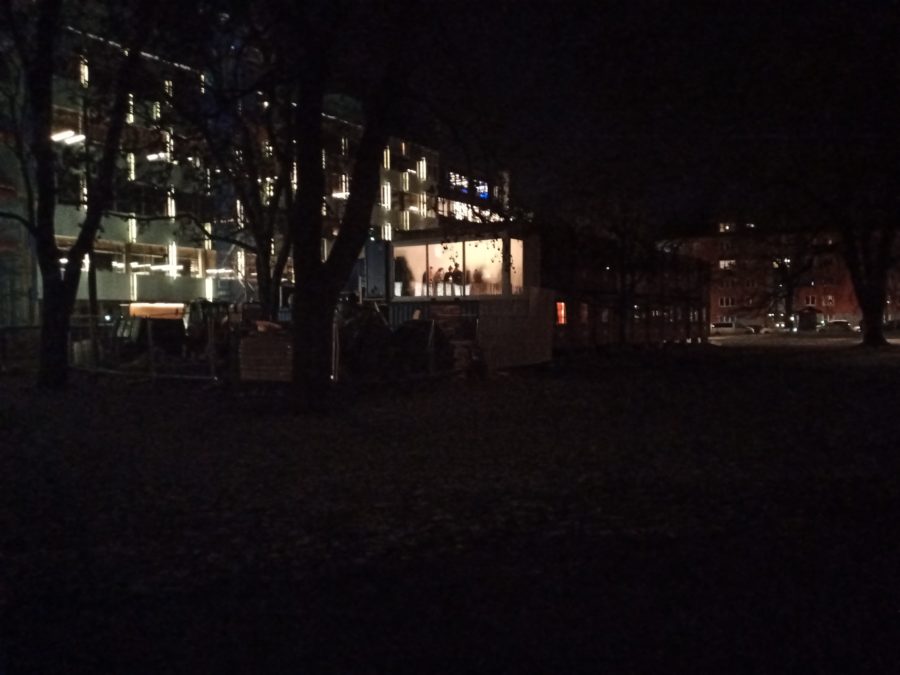
[huge_it_gallery id="25"]
From February till November 2016, we developed 10 gatherings related to the project"HOY ÑOQUIS" at antipodes café DEG 15. First one was just by invitation, the rest were public events. Last one was also an exhibition, and part of this installation was presented in Brasilia at the beginning of 2017, during the exhibition "antipodes café visits Elefante".
More than ten thousands gnocchi were served gratuitously to many visitors arriving thanks to the promotion via email newsletter, our Facebook page, outdoor sign, or just dropping by. Many times visitors participated in the preparation, serving, taking pictures, cleaning and of course in talks about traditions.
SUPPORT
Bydel Gamle Oslo — Frivillighetsmidler 2016
THANKS
Losæter
Herbanists
Juan Manuel Alonso (UY/IT)
Sunniva Melbye (NO)
Debbie Scanlan (UK)
and all visitors ♥♥♥
[huge_it_gallery id="28"]
2015.08.29
In the frame of the study trip “Grupo de Viaje”, students from the Faculty of Architecture of Uruguay travel around the world visiting many cities and architectural masterpieces and taking part in previously coordinated lectures, classes and workshops.
During their visit to Oslo, we were invited to give a lecture to them about our past works and modality. So we coordinated with Kulturhuset i Oslo who kindly support us opening their place early morning for this activity, and later we crossed street and we took several tables to prepare and serve ñoquis gratuitously to students and all those who want to join.
During the lecture students peeled the potatoes, some of them from the urban farm Losæter, located in Bjørvika Oslo.
THANKS
Kulturhuset i Oslo
Losæter
Grupo de Viaje 2015, Farq (UY)
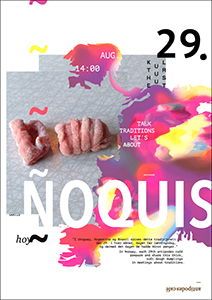
[huge_it_gallery id="30"]
2015.11.29
With the idea of making a day of gratis food in the expensive area of Oslo branded as "Barcode", we proposed the owners of the new restaurant/pub "Vesper" to develop a day of "HOY ÑOQUIS" in their place as a pilot experience for a possible future. We prepared gnocchi following a receipt by the Uruguayan chef Juan Manuel Alonso with the great help from both chefs at the restaurant.We promoted in the area with some flyers, an event on our Facebook page and a poster in the street, and as it was a cold dark Sunday in a quite empty area of the town, we expect no one to come, but on the contrarily we ran out of gnocchi in such a great gathering.
Let's talk about traditions.
THANKS
Vesper Gastrobar
Juan Manuel Alonso
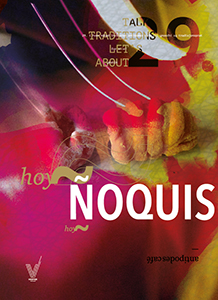
[huge_it_gallery id="29"]
2015.(01,03,04,07,09,10,12)
In addition to the gatherings at Youngstorget and Vesper Gastrobar, during 2015 we prepared and shared gnocchi in our house at DEG24 and in our studio located in Kampen. Gatherings were promoted with public events in our Facebook page.
[huge_it_gallery id="27"]
SUPPORT (2020)
SUPPORT (2016)

THANKS
Kulturhuset UT
Vesper Gastrobar
Losæter
Herbanists
Isachsen Anlegg
Poti
Marcelito Díaz
Juan Manuel Alonso (UY/IT)
Sunniva Melbye (NO)
Debbie Scanlan (UK)
Iker Tolosa (DSS2016EU) –apron, now 3 frames–
Gonzalo Rivas (estudio Herreros)
Rafael Lejtreger
and all visitors ♥♥♥
